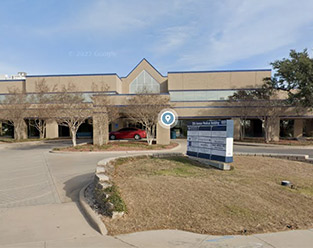Are There Different Kinds of TBIs? How Do You Know How Severe Your Injury Is?
 When you’ve suffered any type of bump or blow to the head, you want to get immediate medical attention. Even what seems like a relatively minor injury can have serious consequences, so prompt medical care is critical. But there are different ways that medical professionals classify head and brain injuries, typically based on severity. What are those classifications and how will a doctor determine the severity of your injury?
When you’ve suffered any type of bump or blow to the head, you want to get immediate medical attention. Even what seems like a relatively minor injury can have serious consequences, so prompt medical care is critical. But there are different ways that medical professionals classify head and brain injuries, typically based on severity. What are those classifications and how will a doctor determine the severity of your injury?
The Different Kinds of Traumatic Brain Injuries
At the most fundamental level, head injuries are characterized as either open or closed types of injuries. An open injury is one where the skull is penetrated by some foreign object, exposing the brain to potential damage from contact with that object. Closed head injuries may nonetheless be very serious, but they don’t involve any penetration or contact. Instead, they are typically caused by a blow to the head where the brain is injured by contact with the inside of the skull.
Medical professionals commonly classify traumatic brain injuries as primary or secondary as well. Primary injuries are typically visible and capable of observation and diagnosis at the time of the TBI or immediately thereafter. Secondary injuries, such as those caused by inflammation, generally don’t start to manifest for hours or days.
How Will a Doctor Determine the Severity of Your Head Trauma?
Medical professionals have a number of ways of gauging whether your TBI is mild, moderate or severe:
- The length of time you lost consciousness—If you never did, or if your loss of consciousness lasted less than 30 minutes, your traumatic brain injury will be deemed mild. If you remain unconscious for less than 24 hours, your TBI will be labeled as moderate. Any longer than that and you’ve suffered a severe traumatic brain injury. Doctors will often use the same approach, looking at any altered state of consciousness, rather than loss of consciousness.
- The Glasgow Coma Scale—This is a diagnostic tool that looks at three factors—your verbal skills, your motor skills, and your ability to open and close your eyes. Doctors will assess points for each and determine the level of your TBI based on total score.
- Whether you have any post-TBI amnesia—Some level of amnesia for up to 24 hours is not uncommon with a mild TBI. If the amnesia lasts more than a day, but less than a week, it’s generally associated with moderate traumatic brain injury. Amnesia that persists for more than 7 days is a sign of a serious TBI.
Contact Us to Set Up an Appointment
At Advantage Healthcare Systems, we have extensive experience working successfully with individuals who suffer any type of concussion, TBI or traumatic brain injury. Call us toll-free at 1-877-487-8289 or fill out the form provided below to schedule an assessment. We offer locations across Texas, including Fort Worth, Dallas and San Antonio.





